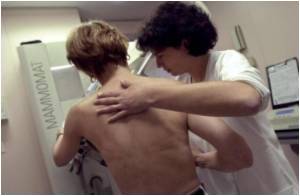Smoking and nipple-piercing could lead to breast abscess, according to a new study in the July issue of the Journal of the American College of Surgeons.

Breast abscesses, inflammatory lesions of the breast that are painful and difficult to treat, tend to recur at rates as high as 40 to 50 percent, according to previous retrospective studies. Until now, there has been a lack of research on the risk factors associated with this condition.
“Nearly 60 percent of patients with a recurrence of breast abscess were heavy smokers,” said Vinod Gollapalli, MD, a post-doctoral fellow in the department of surgery at the University of Iowa Carver College of Medicine, Iowa City. “Since smoking appears to be a strong risk factor for both causing breast abscess and its recurrence, we recommend patients should be counseled to quit smoking as an integral part of treatment.”
Using the surgical and radiologic databases at the University of Iowa Hospitals and Clinics, researchers identified 68 patients from January 1, 2004, to November 1, 2009, with a diagnosis of breast abscess who did not have a current or previous history of breast cancer, breast radiation therapy, or breast surgery within the past 12 months. Patients were considered to have recurrence of their breast abscess if they required a repeat drainage procedure in the same breast quadrant within six months. All breast abscesses were confirmed by ultrasound and/or drainage of purulent material. Of the 68 cases evaluated, 53 patients were identified as Caucasian, 43 were smokers and nine had a history of nipple piercing. Thirty-seven patients (53 percent) needed multiple surgical treatments, and of these, 22 were current heavy smokers (smoking more than 10 cigarettes per day). Five patients had developed mammary fistulas; all of these patients were heavy smokers. Age, smoking and the need for surgical treatment were found to be associated with increased risk of recurrence.
Univariate analysis indicated that smoking (odds ratio [OR] 8.0 [95 percent CI 3.4 to 19.4]), obesity (OR 3.6 [95 percent CI 1.5 to 9.2]), diabetes mellitus (OR 5.7 [95 percent CI 1.1 to 54.9]), and nipple piercing (OR 10.2 [95 percent CI 1.3 to 454.4]) were significant risk factors for development of primary breast abscess. Multivariate logistic regression analysis confirmed smoking as a significant risk factor for the development of primary breast abscess (OR 6.15 [95 percent CI 2.65 to 14.29]), and in the subtype of subareolar breast abscess, nipple piercing was identified as a risk factor (OR 20.26 [95 percent CI 2.01 to 204.28]) in addition to smoking (OR 11.49 [95 percent CI 4.41 to 29.94]). Multivariate logistic regression identified significant OR for an increase in recurrence related to age (OR 1.08 [95 percent CI 1.01 to 1.15] per year), smoking (OR 14.73 [95 percent CI 3.18 to 68.22]), surgical treatment (11.94 [95 percent CI 1.08 to 131.72]), and a decrease in recurrence after MRSA infections (OR 0.02 [95 percent CI 0.00 to 0.72]).
The American College of Surgeons is a scientific and educational organization of surgeons that was founded in 1913 to raise the standards of surgical practice and to improve the care of the surgical patient. The College is dedicated to the ethical and competent practice of surgery.
Advertisement












